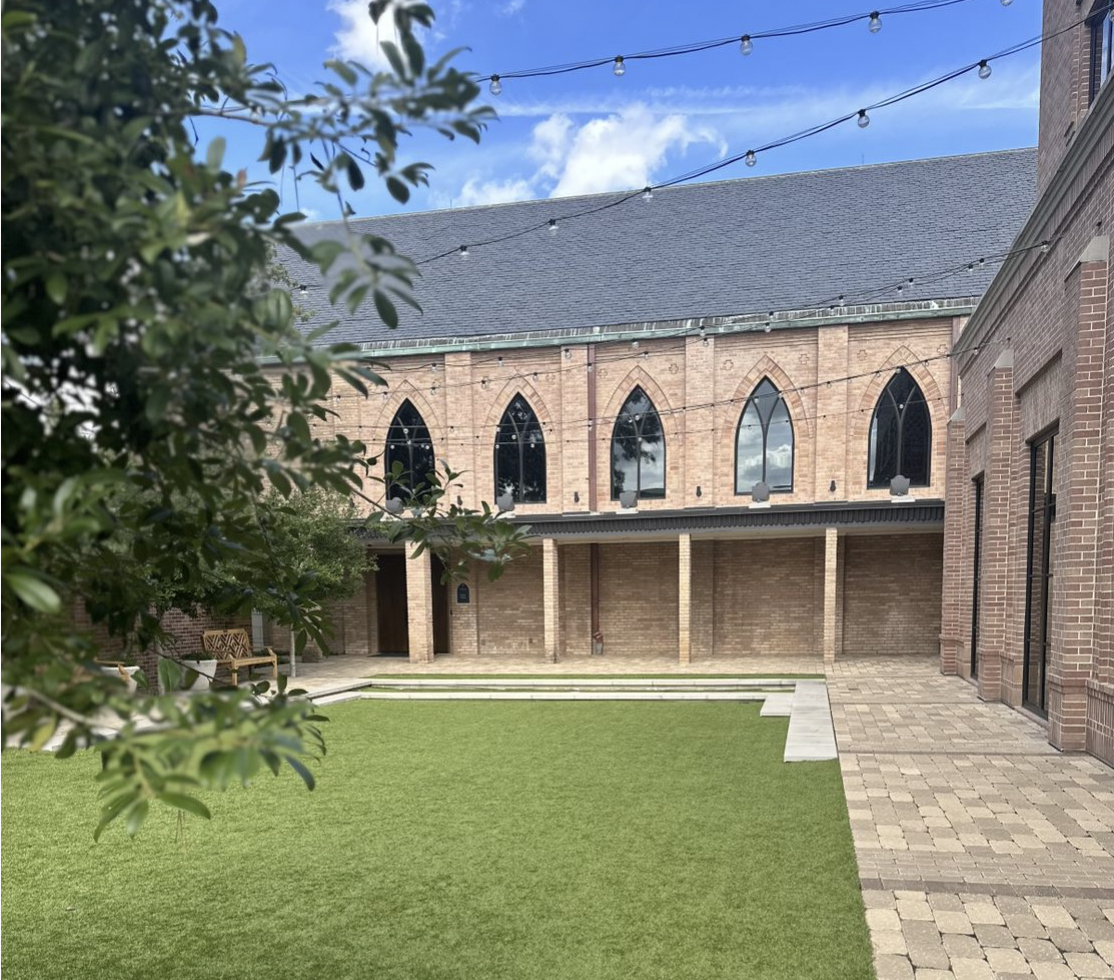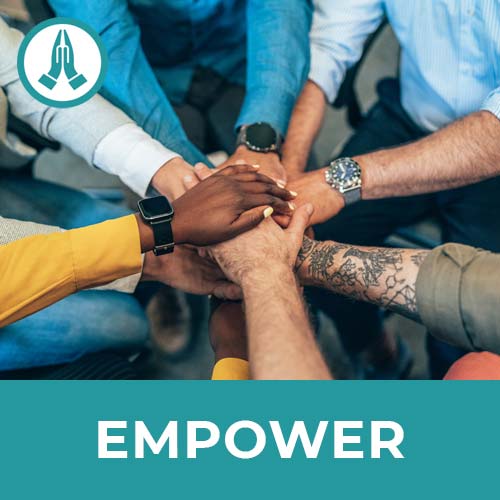
Tanya
Forum Replies Created
-
Yes Cheryl, being able to provide a safe space, compassion, and providing non-judgmental feedback are a few of the things that you can control as a Mental Health Coach. These simple things can go a long way in setting the right atmosphere in which a client becomes more receptive to referrals, alternate ways of viewing their current situation, and to accepting help. Being relatable and maybe sharing your own experiences in these sensitive situations can also be beneficial if the situation allows for it. While you cannot control the outcome or the decisions that another individual makes, as a Mental Health Coach you have to be aware of your limits and the role you play. Even if you do not agree with the choices an individual makes, there is always room for compassion and grace.
-
Tanya
Member07/21/2025 at 4:09 pm in reply to: Facts vs. Myths: An Overview of Mental/Behavioral Illnesses – April Harris-HillApril, I would love to see what you have put together in your PowerPoint presentation. At this time, the forum only allows text to be written out in the box provided. Feel free to email me a copy of your PowerPoint at gatewaytohope@hhci.org. Mental health stigma effects us all but I do agree that in minority groups, there is a difference in how we view mental health. Unfortunately, the lack of awareness, understanding, and mental health resources within these communities compound the issue. In my experience as a Mental Health Coach, actions speak louder than words or statistics. While that information is important, I have experienced that the way a person experiences mental health distress has a far greater impact on their perspective of mental health as a whole. Thank you for working to make a difference and break the stigma surrounding mental health distress.
-
La salud mental nos afecta a todos. Nadie está exento de ella. Contar con un sistema de apoyo sólido es fundamental para aceptar ayuda, continuar con los tratamientos de salud mental y acabar con el estigma de que la salud mental sólo afecta a los débiles. Estoy de acuerdo con usted en que la comunidad de fe debe unirse en torno a estas personas y mostrarles la gracia, la compasión y el amor de Dios, al igual que lo haríamos con cualquiera que no tenga problemas de salud mental. Las comunidades de fe deberían parecerse más a un hospital y ayudar a cerrar la brecha en la comunidad de salud mental. Juntos somos más fuertes y compartir nuestros testimonios de cómo Dios nos ha ayudado a superar los momentos oscuros contribuirá en gran medida a acabar con el estigma que rodea a los trastornos mentales. Gracias por su trabajo y por el papel que desempeñan para salvar las distancias que separan a las personas de su comunidad.
-
Shelly, can you elaborate on how you control your reactions to other people’s decisions?
-
Ana, as the front desk clerk / receptionist, you have the power to make the most impact on an individual. Many times we as humans are a ball of nerves walking into a clinic or seeking out assistance. Being greeted by a friendly smile, a warm reception, and not being made felt like a number in a system can make a huge difference in how receptive they will be moving further along in the process. I agree that listening more can also help an individual calm down and receive guidance, support and care. It is a team effort and I want to thank you for the part you play in positively impacting your community.
-
Rhonda, can you elaborate on what you would include in your brochure? What other methods could you use to share referrals if a client is unwilling to accept a paper brochure? Depending on the situation an individual is facing, it may not be safe for them to have a paper or hard copy of a referral source. Having multiple methods to share referrals is always recommended.
-
Tanya
Member07/21/2025 at 3:30 pm in reply to: Ministry to Women in Crisis Pregnancies – LISA ONEILProviding an individual, especially a woman in a pregnancy crisis situation, with a safe place to process their emotions, validate their feelings, and having a list of possible referrals is a great start to de-escalating a situation. Emotions can run high during a crisis. It can be difficult to come to a clear and well thought out decision when one is running on emotions. In my time as a Mental Health Coach, I have often recommended that an individual sleep on it for 24 hours. If they still feel the same in the morning, then they need to go with that decision. If they do not feel the same, it is ok to change their mind and re-evaluate the situation. It does not mean that they are indecisive. It just means that after further thought and evaluation, that is no longer the best decision for them. Sometimes this is a hard concept for individuals to grasp because they have been told to make a decision and stick with it. I encourage them to sleep on it and change their mind if needed because permanent decisions are just that, permanent.
Thank you for taking the step to become a Mental Health Coach and bridging the gap in the mental health community. I look forward to hearing how this training will impact your ministry and the community you serve.
-
Tanya
Member07/21/2025 at 3:17 pm in reply to: Methods to consider when a situation is escalating and needs to be carefully reigned back in to a productive session. – Earl Ferry JrYes Earl, these techniques are applicable all situations. Being able to effectively communicate, listen, and compassionately relate to individuals in any setting, goes a long way to making them feel comfortable and willing to open up and receive help. The old saying, “you catch more flies with honey” is so true. Unfortunately, I think we as a society have adopted the “tough love” mantra and forgotten that people respond better to compassion and grace.
As you stated, sometimes being able to be ready with a grounding technique can also help calm emotions and de-escalate a situation. Emotions are a powerful thing. They can make us feel things so passionately that we need help reseting our minds and returning to neutral. The 4 square breathing and the 5-4-3-2-1 methods are great techniques to apply in these situations. If you come across any others, please share them with the group. I’d love to hear what works for you.
Thank you for sharing and for the work that you do in your community.
-
Tanya
Member07/02/2025 at 4:45 pm in reply to: Referrals for the Client in a Crisis Pregnancy – Carol AlbertsonCarol, thank you for the work you do in the mental health community. It is a blessing to be a part of an organization that has already established trainings or a sound referral network. As a part of your training, you now have access to our list of providers, educational trainings and resources. I encourage you to check out our Wellness and Brain Health page for more information and the possibility of expanding your referral network. Thank you for bridging the gap in the mental health community.
https://gthu.org/wellness-and-brain-health/
gthu.org
Explore our Wellness and Brain Health providers to support your journey toward healthier brain habits, improved mental and behavioral health, and overall well-being.
-
Tanya
Member07/02/2025 at 4:40 pm in reply to: Fostering Mental Health Conversations – Patrick ONEILPatrick, I can relate that in the past the church has been slow to respond to issues such as mental health but when they do, the church has a way of making a valuable impact in the community. Once the pastors and the administrations unite in their mission to launch a mental health ministry, the conversations are compassionate and full of grace. These types of responses foster an atmosphere of healing and recovery.
Being able to use your own experiences can truly cut through a person’s defense and allow them to be vulnerable. Often people tend to think that MHCs, licensed professionals, or others that they admire are perfect or have it all together. Understanding that we are all humans and we all struggle with mental health distress at some point in our lives, it can help in a person’s mental health recovery journey.
I encourage you to check out our Wellness and Brain Health page. There you will find resources, our list of network providers, and information that will help you as a Mental Health Coach. Thank you for taking the first step in bridging the gap in the mental health community.
https://gthu.org/wellness-and-brain-health/
gthu.org
Explore our Wellness and Brain Health providers to support your journey toward healthier brain habits, improved mental and behavioral health, and overall well-being.
-
Tanya
Member07/02/2025 at 4:20 pm in reply to: Helping the Pregnant Client with Depression – Monette MulvihillMonette, thank you for taking the first step in bridging the gap in the mental health community. I agree with you and your final project. As a Mental Health Coach, you should share your own experiences depending on the situation and when applicable. Remember that boundaries are important for both you and the individual but in some scenarios, showing the other person that they are not alone in mental health struggles, it helps them recognize they are not alone.
Helping others understand that mental health is not a personal defect but something that we all struggle with on some level, is the best way to break stigmas and stereotypes. I am a firm believer that education is knowledge and power. You said it best when you said to use respectful language and choosing empathy over judgement. Those will come in handy as a Mental Health Coach. I look forward to hearing all the success stories that will come from your mental health ministry.
-
Elaine, I agree that it is important to understand your role and limitations as Mental Health Coach. While you cannot control someone else’s actions, as a Mental Health Coach you can provide them with the tools, resources, and education needed to make the decision that is best for them in that moment. We are not here to judge their decision, but to compassionately recognize, relate, refer, and restore.
I would encourage you to familiarize yourself with the Wellness and Brain Health page, Mischer Behavioral Health Resource Center, and Grace, our AI assistant for additional information and referral sources. Once you have given the information to the individual, it is up to them to do their part in their mental health recovery journey. Thank you for your part in bridging the gap in the mental health community.
https://gthu.org/wellness-and-brain-health/
gthu.org
Explore our Wellness and Brain Health providers to support your journey toward healthier brain habits, improved mental and behavioral health, and overall well-being.
-
Gary, you fill an important hole in the mental health system by offering mental health coaching that is based in the Christian tradition of compassion. Being able to show someone the love of Christ by recognizing the mental health distress is not who they are and relating to them with grace and compassion is the most impactful part of their healing journey. Check out this valuable resource on Mental Health and the Recovery Journey.
https://learn.gthu.org/en/mental-health-and-the-recovery-journey/
learn.gthu.org
Mental Health and the Recovery Journey
Discover practical strategies for overcoming mental health challenges in addiction recovery. Learn how evidence-based tools and support networks can guide your recovery journey. Explore more at GTHU.
-
Sofia, thank you for sharing this Myth vs Fact list. I agree with every single one of them listed above. I find this one the hardest to debunk given our societies need to record or “capture the moment.”
Myth: People with mental health conditions are violent.
Fact: The vast majority of people with mental health conditions are not violent and are more likely to be victims of violence.
Often times when a person who has been struggling with mental health distress and then crosses over to a crisis state, that is what the media or the average person sees and associates as normal mental health behavior. I love how this Mental Health Coach training teaches to compassionately respond to those in mental health distress. If we can help an individual in distress and get them referred to a provider that can assist or meet their needs, instead of recording them at their lowest, we would be showing them the same grace and compassion that Christ shows us.
I agree that this starts with open conversations and education. Knowledge is power. The more individuals that we can get to have a basic understanding of mental health distress, the better we will do as a community to bridge the gap in the mental health community. For that, I strongly encourage you to share the Empower Faith Community training. It is free to take and comes with videos and resources that will help individuals create a basic understanding of recognizing, relating, referring, and restoring those in mental health distress through grace and compassion.
https://learn.gthu.org/courses/empower-for-faith-communities/
learn.gthu.org
Empower Faith Communities: Online Mental Health Training
This course will equip Faith Communities with techniques for identifying mental distress, responding compassionately, and building a network to quickly connect those in mental distress with professional care.
-
Tanya
Member07/01/2025 at 9:36 am in reply to: De-escalation and Grounding for panicking clients – Jane PeoplesThank you for the work that you do in your community. Anxiety has a way of taking over the mind and interfering with reason. It is amazing how de-escalation techniques can calmly and effectively bring a person back to a calm state of being. In my own experience as a Mental Health Coach, I have sometimes thought, “Wow this person is really struggling. I don’t think this grounding technique is going to work.” Then each and every time I am amazed at how powerful the brain is. If left in a panic or anxious state, it will continue to process more and more of those feelings. If you get the brain to focus on something else, it slowly returns to it’s calm state and focuses on the new task at hand. Other techniques or tools that I have learned from other Mental Health Coaches include multiplication tables, naming cities or states, or the use of fidget spinners. If you find any other methods that work for you and your clients, please share. I’d love to add them to my toolkit. Thank you for bridging the gap in the mental health community.





